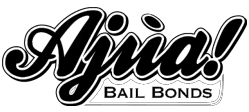Securing the release of a loved one following an arrest can be a stressful and financially challenging task. While the bail bond system allows for a more accessible release, sometimes the bond’s cost can be extremely high. That is where collateral can help. But what exactly is collateral in the context of bail bonds, what can be used, and how does it function? Ajua Bail Bonds would like to help answer these questions and assist those who may need to use collateral to ensure the release of a loved one.
Understanding Collateral in the Bail Bond System
Collateral is essentially a form of security provided to the bail bond agent to ensure that the defendant appears in court. If the defendant skips court and the bail bond is forfeited, the bail bond agency can liquidate the collateral to cover their loss.
What Collateral Can Be Used for a Bond?
While the exact types of collateral can vary based on the bail bond agency and the state’s regulations, common forms of collateral can include:
• Real Estate: A house, land, or any property can be used as collateral. The amount of equity in the property will be considered, and typically, any mortgage or lenders will need to be disclosed.
• Vehicles: Cars, trucks, motorcycles, boats, and even recreational vehicles can serve as collateral. As with real estate, the vehicle’s value minus any outstanding loans determines its worth as collateral.
• Jewelry: High-value jewelry, especially items like diamonds and gold, can be accepted. It is essential to have an appraisal or some proof of the item’s value.
• Stocks or Bonds: Investment instruments like stocks, bonds, or mutual funds can act as collateral. Their market value will determine their worth in the bail bond context.
• Electronics or Appliances: In some cases, high-value electronics or appliances may be considered, although they are generally less preferred due to depreciation.
• Cash: Although it might sound redundant, cash can be held as collateral in conjunction with the bail bond fee. This is especially important if there is a high risk of flight with the defendant.
How Does Collateral Work for a Bail Bond?
Once an item is presented as potential collateral, the bail bond agency will evaluate its worth. This might involve appraisals or market assessments. If the bail bond agent accepts the collateral, both parties will sign an agreement detailing the collateral’s terms, including conditions for its return. The bail bond agency will securely store the collateral. If it is an item like real estate or a vehicle, the title or deed might be temporarily handed over instead of the physical item. If the defendant attends all court dates and fulfills their obligations, the collateral is returned to the owner. The return process can be immediate or might take a few days, depending on the agency and collateral type. If the defendant skips bail, the bail bond agency has the right to liquidate the collateral to recover the bond amount. This might involve selling the item or, in the case of investments, cashing them in.
Bail Bond Services in Clovis, Reedley, Sanger, Selma, Atwater, Los Banos, Merced, Visalia, Porterville, Tulare, Hanford, Corcoran, Lemoore & Greater Fresno, CA
Understanding collateral is important for anyone going through the bail bond system. It offers a viable solution for those unable to pay the bail bond fee outright. However, the stakes are high. Before offering an item as collateral, ensure you are fully aware of the implications and the defendant’s likelihood of meeting their court obligations. Working with a reputable bail bond agency can also provide added peace of mind during this often difficult time. For quality bail bond services, contact Ajua Bail Bonds today.

